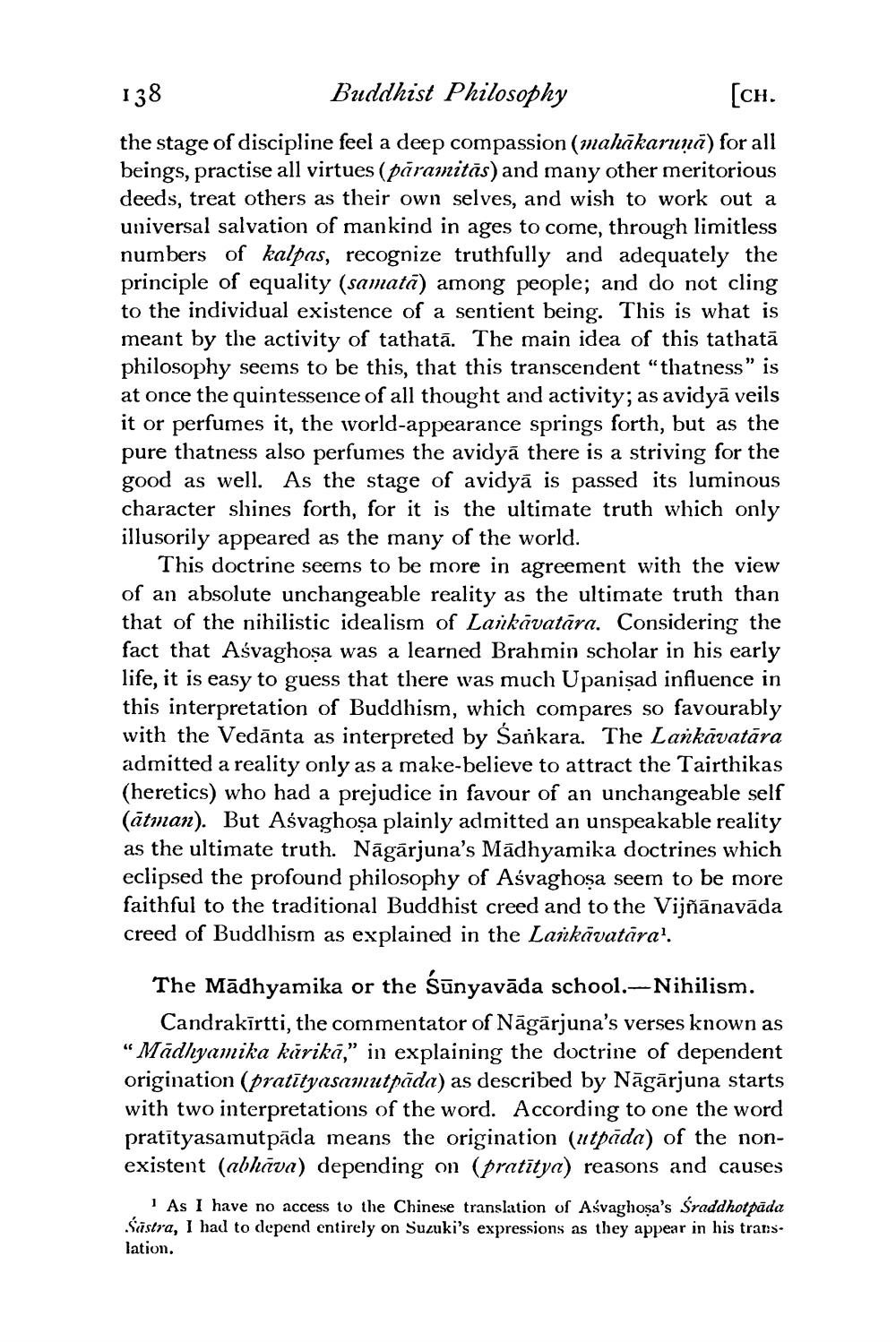________________
138
Buddhist Philosophy
[CH.
the stage of discipline feel a deep compassion (mahākarunā) for all beings, practise all virtues (pāramitās) and many other meritorious deeds, treat others as their own selves, and wish to work out a universal salvation of mankind in ages to come, through limitless numbers of kalpas, recognize truthfully and adequately the principle of equality (samatā) among people; and do not cling to the individual existence of a sentient being. This is what is meant by the activity of tathatā. The main idea of this tathatā philosophy seems to be this, that this transcendent "thatness" is at once the quintessence of all thought and activity; as avidyā veils it or perfumes it, the world-appearance springs forth, but as the pure thatness also perfumes the avidyā there is a striving for the good as well. As the stage of avidyā is passed its luminous character shines forth, for it is the ultimate truth which only illusorily appeared as the many of the world.
This doctrine seems to be more in agreement with the view of an absolute unchangeable reality as the ultimate truth than that of the nihilistic idealism of Laikāvatāra. Considering the fact that Asvaghosa was a learned Brahmin scholar in his early life, it is easy to guess that there was much Upanişad influence in this interpretation of Buddhism, which compares so favourably with the Vedānta as interpreted by Sankara. The Lankāvatāra admitted a reality only as a make-believe to attract the Tairthikas (heretics) who had a prejudice in favour of an unchangeable self (ātman). But Ašvaghosa plainly admitted an unspeakable reality as the ultimate truth. Nāgārjuna's Madhyamika doctrines which eclipsed the profound philosophy of Ašvaghosa seem to be more faithful to the traditional Buddhist creed and to the Vijñānavāda creed of Buddhism as explained in the Laïkävatara'.
The Mādhyamika or the Šūnyavāda school.-Nihilism.
Candrakīrtti, the commentator of Nāgārjuna's verses known as "Madhyamika kārikā,” in explaining the doctrine of dependent origination (pratītyasamutpăda) as described by Nāgārjuna starts with two interpretations of the word. According to one the word pratītyasamutpāda means the origination (utpāda) of the nonexistent (abhāva) depending on (pratītya) reasons and causes
1 As I have no access to the Chinese translation of Asvaghoşa's Sraddhotpada Šāstra, I had to depend entirely on Suzuki's expressions as they appear in his translation.




